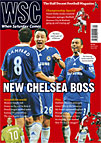 After a winter of mud and ice Ligue 1 sides are eyeing a permanent solution to bad pitches, reports James Eastham
After a winter of mud and ice Ligue 1 sides are eyeing a permanent solution to bad pitches, reports James Eastham
When French sports daily L’Equipe described the Emirates Stadium pitch as “magnificent” the day after Arsenal’s 1-0 win over Roma in the Champions League last 16, you could almost hear the envy in their voice. Ligue 1 has just emerged from a winter in which the dreadful playing surfaces made a mockery of dozens of games. The word bachee (tent) entered the sporting lexicon as French clubs erected great big canvases over their pitches in futile bids to keep the frost at bay. When the covers came off just before kick-off, referees would usually decide pitches were playable, but the evidence in front of our eyes said otherwise.
Sochaux’s Stade Bonal was a grass-free zone when they hosted Marseille on February 1, unless there were a few blades hiding beneath the sand and mud melange that passed for a playing surface. Farcical conditions at Lyon, Nice, Valenciennes and Monaco marred other matches as ice and ankle-deep divots endangered players across the country. Marseille president Pape Diouf tore into the match officials and opposite number Jean-Claude Hamel before Marseille faced Auxerre on what was best described as a bobbly ice rink. “You’re crazy to allow the game to go ahead,” raged Diouf. “What do you want – deaths or injuries?” Marseille won the game 2-0, but the biggest success of the night was that players managed to stay upright. Diouf wasn’t the only influential figure to vent his spleen about unsuitable pitches. “I permit myself to have a go at the groundsman tonight, because he had a bad game as well,” said Bordeaux coach Laurent Blanc following his side’s 2-2 draw at home to Lille, also on February 1. Such complaints were commonplace, and more often than not justified.
The situation was exacerbated by some ridiculous administrative decisions – who thought 9pm kick-offs in January were a good idea? – but the real issue was the inability of French clubs to prepare decent playing surfaces in tricky conditions. On this matter, it’s possible to feel some sympathy with the clubs, because they’re at the mercy of councils, who own most of the stadiums. As tenants, the clubs ask for a proper pitch – but don’t always get it.
Take this example in Brittany, where Lorient fell out with their local landlords. As part of an understandable rant about the club’s decrepit Stade du Moustoir, club president Alain Le Roch blamed the town mayor for failing to maintain the club’s pitch. The team’s centre-half Michael Ciani added: “The poor quality costs us, as it’s difficult to play the football we’d like on it.” He’s right – at the time of writing, Lorient have won just three of 13 home matches.
Lorient’s Brittany neighbours Rennes have taken a more radical step, however – they’ve decided in principle to put down an artificial pitch. Sick of relaying their surface time and time again only to see it cut up, club and local officials have agreed that plastic is the way forward. Rennes would have implemented their new surface last summer but for a calendar hitch: they qualified for the Intertoto Cup on the final day of last season, which made their summer break too short to get the job done. No official date has been set yet for installation, but this summer or next it looks almost certain to happen.
The authorities fully support the Bretons’ decision, too: Ligue de Football Professionnel president Frederic Thiriez pushed through a motion allowing artificial surfaces at grounds last May. And he’s a big fan of them, saying: “The future is synthetic. [Plastic pitches] will guarantee greater fairness, more entertainment and favour beautiful football.”
It’s all a bit worrying for those who feel the game belongs on grass, but French football’s quest for level playing fields (literally) is understandable given the problems of the past few months. Perhaps the best hope the pro-grass brigade have is that national team coach Raymond Domenech has given the fake stuff his blessing: “All they do is change things a bit for defenders, because they burn a bit when you tackle.” Nice one, Raymond. He’s so unpopular his patronage will do more harm than good.
But even Domenech may prove unable to knock this revolution off course. If Rennes’ experiment goes ahead and proves successful, they surely won’t be the only Ligue 1 club who turn their back on turf. At some point in the next couple of seasons, supporters at Stade de la Route de Lorient could well get a glimpse of the future.
From WSC 266 April 2009